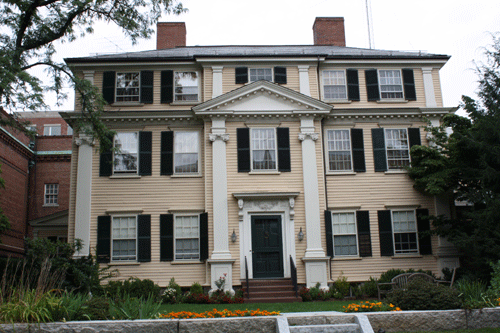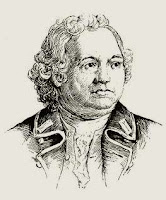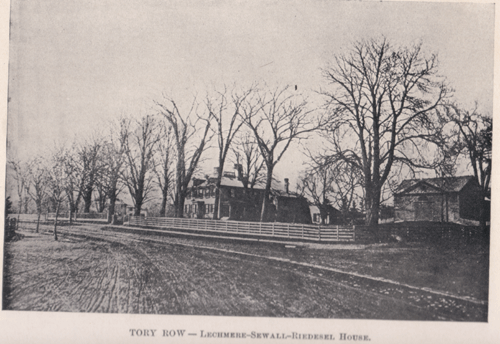“Pray the God of Armies to restrain Man”
Justice Quincy couldn’t very well write to Hancock and ignore the man’s fiancée, Dorothy Quincy, could he? After all, she was his daughter.
Thus, we have this second, shorter letter written inside “Boston (a Garison’d town)”:
Dear Dolly—Esther Sewall was another of Edmund Quincy’s daughters, married to royal attorney general Jonathan Sewall. She evidently had a close-up “View” of the administration of Gen. Thomas Gage and was “distress’d” at what lay ahead.
I’ve an opporty (unexpected) by Doctr. [Benjamin] Church, Just to tell you, that I’m kept from my intended Journey to L[exing]ton & [Lene’y?] by restraint of Princes—endeavors are using to obtain an opening but how soon, none know!
It’s ye. will of Heaven, that it should be thus—!—To His Will, let us learn Submission, thro’ all the Changing Scenes of a Short uncertain Life—I pray God we may all learn this profitable Lesson, that we may be reaping the advantage at all times, especially in a time of Sharp trials, to wch. we are in every State more or less liable
We are generally in good health—but as generally under great sorrow, for the loss of so many humane lives, Wednesday last: pray the God of Armies to restrain Man, from further Attempts of a Similar kind—
Your Bror. & family propose removal—to Providence—if the Gates are opened to us—your Trunk is here—if mine go, yours will also—
I condole with Madm. [Lydia] Hancock, & you, under present & late Circumstances of things—I hope to see you soon, if it please God
Interim recommending you to his protection, with. all your near-Connexions in this devoted Town—I am with my Sincere regards to Madm. H. Mr. [Jonas] Clark & Lady—, Dear Child, Your Affectionate Father & Friend
Edm: Quincy
[Postscript:] Your S[iste]r. [Esther] Sewall distress’d, with ye View she has of things
[Postscript vertical along left margin:] I hope Mr. H. is well on is Journey—you are happy in yo. being out of this town—tho’ ye. Govr. Speaks Fair He is much troubled himself
TOMORROW: The letter carrier.










